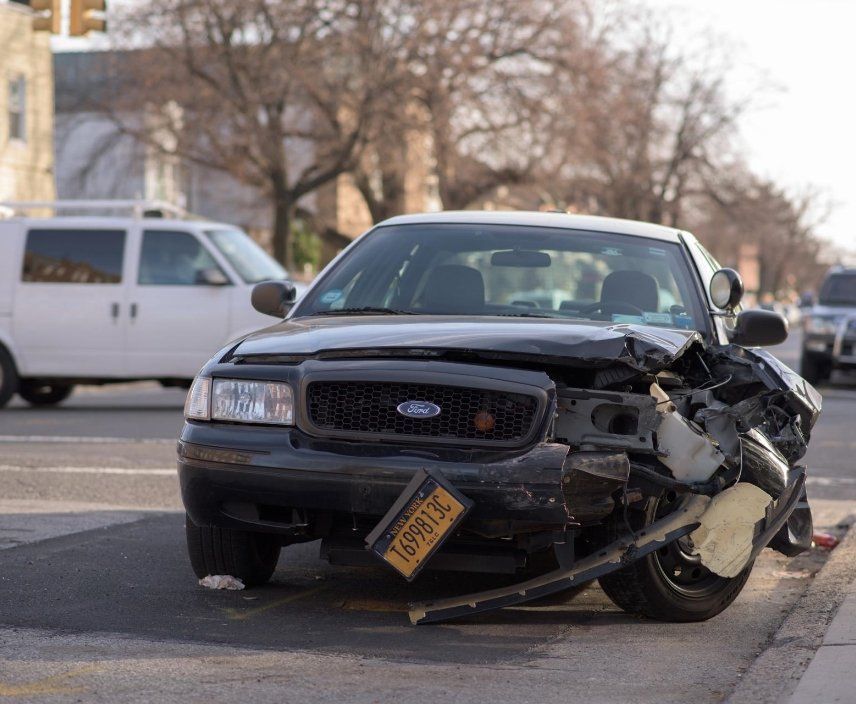Proven Appeals Lawyer in Phoenix, Scottsdale AZ
PROFESSIONAL DUI APPEALS FIRM IN PHOENIX, AZ
Getting an Arizona court to reverse a criminal conviction or to overrule a trial court judge is one of the most difficult tasks facing an attorney. Moreover, selecting when to challenge a ruling, what mechanism of Arizona appellate procedure to invoke or determining whether there is a realistic chance of success can be as much art as it is law.
What most people think of as an “appeal” is actually several different categories of processes in Arizona where a higher court reviews the decision of a lower court.
Ready to Fix This?
After a Conviction
APPELLATE BRIEFS - MISDEMEANORS
Filing Deadlines
Opening Brief
The appellant’s memorandum (i.e. the brief) shall be filed with the trial court within 60 calendar days from the deadline to file the notice of appeal.
Response Brief
The appellee’s memorandum shall be filed within 30 calendar days of the filing date of the appellant’s memorandum.
Reply
No reply memorandum shall be filed unless authorized by the Superior Court.
Important Note:
If no Response memorandum is filed, the matter shall be deemed submitted on the record and the appellant’s memorandum. However, the non-filing of an appellee’s memorandum shall not constitute a confession of error.
Format Requirements
Memoranda shall be typed or printed, single-sided.
Memoranda shall be on 8.5 by 11-inch white paper.
Memoranda shall be exclusive of any appendices, memoranda shall not exceed 15 pages.
The text shall be doubled-spaced except for quotations.
Easy to Miss:
In computing time limits, the “last day” means that when the last day of any period of time prescribed herein falls on a Saturday, Sunday, or day when the court is closed, the “last day” shall be the next day court is open.
The day of the act or event from which the designated time period begins is not to be included. Except as stated by these rules or by order of a court in a particular case, the filing deadlines for motions, responses, and memoranda, are not enlarged when sent by mail.
Except as stated by these rules or by order of a court in a particular case, the filing deadlines for motions, responses, and memoranda, are not enlarged when sent by mail.
See Rule 1. Scope; Definitions, Superior Court Rules of Appellate Procedure – Criminal.
Before a Conviction
SPECIAL ACTIONS
From Superior Court - To Court of Appeals
Where the action is brought in a Court of Appeals, it shall be brought before whichever Court of Appeals has territorial jurisdiction over the county in which the action might have been brought had it been presented to a Superior Court. AZ ST SPEC ACT Rule 4
Pleadings
There shall be a complaint, which may be verified or accompanied by affidavits or other written proof, and an answer by the defendant or the real party in interest, or such other responsive pleadings as may be appropriate. The court may order any party or persons to file with the court all or any part of any records in his or its possession.
AZ ST SPEC ACT Rule 4
Caption
In any special action filed against a Superior Court Judge, Court of Appeals Judge or other officer in a Court of Appeals or in the Supreme Court and in any petition for review filed pursuant to Rule 8(b) of these rules, the caption shall state the name of the judge or officer followed by the person’s official title, e.g., “[Name of Petitioner], Petitioner v. Hon. [Name of Judge], Judge of the Superior Court of the State of Arizona, in and for the County of [Name of County], Respondent and [Name of Real Party in Interest], Real Party in Interest.”
Questions Raised
The only questions that may be raised in a special action are:
(a) Whether the defendant has failed to exercise discretion which he has a duty to exercise; or to perform a duty required by law as to which he has no discretion; or
(b) Whether the defendant has proceeded or is threatening to proceed without or in excess of jurisdiction or legal authority; or
(c) Whether a determination was arbitrary and capricious or an abuse of discretion.
Editors’ Notes
AZ ST SPEC ACT Rule 3
Standards of Review
ABUSE OF DISCRETION
State v. Chapple, 135 Ariz. 281, 297, 660 P.2d 1208, 1224 (1983):
The term “abuse of discretion” is unfortunate. In ordinary language, “abuse” implies some form of corrupt practice, deceit or impropriety. Webster’s Third New International Dictionary (1976). In this sense, the application of the word to the act of a trial judge who ruled in accordance with all the decided cases on the issue is inappropriate. However, in the legal context, the word “abuse” in the phrase “abuse of discretion” has been given a broader meaning.
In the few cases that have attempted an analysis, the ordinary meaning of the word has been considered inappropriate and the phrase as a whole has been interpreted to apply where the reasons given by the court for its action are clearly untenable, legally incorrect, or amount to a denial of justice. State ex rel. Fletcher v. District Court of Jefferson County, 213 Iowa 822, 831, 238 N.W. 290, 294 (1931).
Similarly, a discretionary act which reaches an end or purpose not justified by, and clearly against, reason and evidence “is an abuse.” Kinnear v. Dennis, 97 Okl. 206, 207, 223 P. 383, 384 (1924).
The law would be better served if we were to apply a different term, but since most appellate judges suffer from misocainea, we will no doubt continue to use the phrase “abuse of discretion.” Therefore, we should keep some operative principles in mind. Something is discretionary because it is based on an assessment of conflicting procedural, factual or equitable considerations which vary from case to case and which can be better determined or resolved by the trial judge, who has a more immediate grasp of all the facts of the case, an opportunity to see the parties, lawyers and witnesses, and who can better assess the impact of what occurs before him. Walsh v. Centeio, supra.
Where a decision is made on that basis, it is truly discretionary and we will not substitute our judgment for that of the trial judge; we will not second-guess. Where, however, the facts or inferences from them are not in dispute and where there are few or no conflicting procedural, factual or equitable considerations, the resolution of the question is one of law or logic. Then it is our final responsibility to determine law and policy and it becomes our duty to “look over the shoulder” of the trial judge and, if appropriate, substitute our judgment for his or hers. This process is sometimes, unfortunately, described as a determination that the trial judge has “abused his discretion.” In that sense, we determine that this trial judge did.
Criminal Appeals FAQS
- What does Arizona law allow a person convicted a crime to appeal?
This gets a little tricky but Arizona law only allows a person convicted of a crime to appeal a final judgment. For example, a final judgment of conviction after sentencing or the denial of a motion for a new trial. If a final judgment has not occurred then the appropriate mechanism is likely something called a special action.
- What is a direct appeal in Arizona?
Coming soon.
- How long does it take to get a decision on appeal in Arizona?
Coming soon.
- What is an appellate court mandate?
“The mandate is the final order of the appellate court, which may command another appellate court, superior court, or agency to take further proceedings or to enter a certain disposition of a case. An appellate court retains jurisdiction of an appeal until it issues the mandate.” Rule 31.22, Arizona Rules of Criminal Procedure.
- Which judge will decide my appeal?
Coming soon.
MISDEMEANOR DUI & CRIMINAL APPEALS FAQs
- How long do you file to a notice of appeal from an Arizona misdemeanor DUI conviction?
Rule 31.2. Notice of Appeal or Notice of Cross-Appeal, Arizona Rules of Criminal Appeals
- How does an appeal of a DUI from City Courts to Superior Court work?
The is same as if you were appealing a decision from a city court. See the answer above.
- If I lose my appeal at the Superior Court, can I get a higher to review it?
The is same as if you were appealing a decision from a city court. See the answer above.
SPECIAL ACTIONS FAQs
- What are special actions?
Coming soon.
- What is an emergency special action?
Coming soon.
- What is a stay?
City Courts to Superior Court
Justice Courts to Superior Court
FELONY DUI & CRIMINAL APPEALS FAQs
- How long do you file to a notice of appeal from an Arizona Aggravated DUI conviction?
Coming soon.
- How does an appeal of a DUI from Superior Court to the Court of Appeals work?
Coming soon.
- How does an appeal of a DUI from the Court of Appeals to the Arizona Supreme Court work?
Coming soon.
- What is an Amicus Brief?
Coming soon.
- What is an “Anders” Brief?
Coming soon.
- What is a “Pensen” Brief?
Coming soon.
- How can you contact the Court or Appeal?
Div. 1, Arizona Court of Appeals
Phone: 602-452-6700
Email: inform@appeals.az.gov
Location: 1501 W. Washington Street, Phoenix, 85007
- How do file things with the court of Appeals?
Electronic filing is done though AZTurboCourt
https://turbocourt.com/go.jsp?act=actShowState&tmstp=1303166466042&id=11542622
POST CONVICTION RELIEF FAQs
- Coming soon.
Coming soon.
POST TRIAL MOTIONS FAQs
- When is a motion for a new trial have to be filed?
Coming soon.
PETITIONS FOR REVIEW FAQs
- When can I petition for a review?
Coming soon.
BOND ON APPEAL FAQs
- Coming soon.
Coming soon.
"Lawrence represents very high-profile clients who greatly depend on a good outcome, and this guy will deliver.
This is a prosecutor's worst nightmare, and it should be that way if you need an attorney."
- David E.
Real Client's Husband, Phoenix, AZ
Hiring an Experienced DUI/DWI Attorney
Arizona DUI law is extremely complicated and has severe consequences. DUI law is commonly referred to as a minefield. An attorney must be competent in the Arizona Rules of “Criminal” Procedure, the Arizona Rules of Evidence, the United States and Arizona Constitutions, and the Arizona Department of Motor Vehicles Rules and Regulations.
An attorney cannot do anything for you unless he or she has extensive experience in these areas. Police officers are only human and do commit legal errors. However, only an experienced DUI attorney will be able to find these errors and use them to help his or her client.
You should choose an experienced DUI attorney for the same reason you should choose a qualified doctor. If you break your wrist, you go to a doctor that specializes in wrist injuries. When you are charged with a DUI, you should hire a qualified DUI attorney.
An experienced Arizona DUI attorney can analyze your case for legal errors and defenses. He or she can have blood samples independently analyzed, look for suppression issues, review calibration / COBRA records of breath machines, find the right expert witnesses for your trial, and assist you with your driver’s license issues.
For more information, call our office at (602) 494-3444 or visit our contact page.
What Real People Are Saying
That is, DUI cases actually dismissed. Verifiable not guilty verdicts. Blood alcohol evidence truly suppressed as witnessed by judges, other lawyers, and newspapers.
Real Client's Husband, Phoenix, AZ
"Lawrence represents very high-profile clients who greatly depend on a good outcome, and this guy will deliver.
This is a prosecutors' worse nightmare, and it should be that way if you need an attorney."
- David E.
REAL CLIENT, PHOENIX, AZ
It was miracle!... A lot of people don't really understand the benefit of having an attorney who used to be a prosecutor. They know all the little tricks and scare tactics the state has as opposed to just hiring an attorney who is a little fish in a big pond."
- Joe C.
Contact Us Today!
For more information, call our office at (602) 494-3444 or fill out the form and we will get back to you.
Contact Us
We will get back to you as soon as possible.
Please try again later.
Legal Coffee Blog | Arizona DUI



DUI Library
The best DUI defense stuff that only a few know and none want to share. A one of a kind annotated resource for lawyers, people accused, or anyone who wants to see what’s going on in our justice system with DUI cases…and how to fix it.

Contact Information
Office Hours
- Mon - Fri
- -
- Sat - Sun
- Closed
What Happens After You Reach Out
A team member will begin reviewing your case.
We will contact you to ask questions and go over your options.
We will determine, together with you, what makes sense for the next step for you and your family to take.
Ready to Fix This?
Contact Us
We will get back to you as soon as possible.
Please try again later.
OUR SERVICES
QUICK LINKS
CONTACT US



